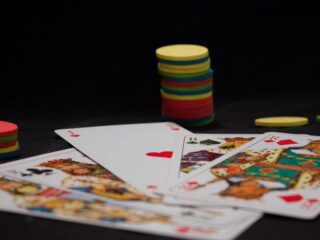
Sometimes I wonder how much success in the virtual world affects our self-perception. We live in an era where achievements in games, likes on social media, and digital rewards are no longer seen just as entertainment but as something that defines our worth. Players rejoice over high ranks, rare skins, and tournament victories — and all of this gradually goes beyond the screen. I feel that this is precisely where an important question arises: where is the line between virtual success and real-life validation? Can an in-game achievement give a person the same confidence as success in real life? Let’s try to explore this.
Digital Achievements as a Source of Self-Esteem
I often notice that for many players, in-game achievements become a key part of their self-esteem. Victories, ranks, rare skins — these aren’t just fun; they’re seen as proof of skill and effort. I see people spending hours, days, even months, climbing ranks or improving their characters.
And I get why it matters: seeing progress and getting recognition from teammates or viewers gives a real sense of satisfaction. That “I did it” feeling motivates you to push forward. Some players even train reflexes and optimize settings, like using a mouse sensitivity converter — to achieve top precision in competitive games. At some point, these achievements become more than just pixels; they feel like personal milestones.
But here’s the tricky part: are we relying too much on these digital markers to define our worth? It’s so easy to compare yourself online, through rankings and stats, that many fall into the trap of constant perfectionism. Suddenly, gaming stops being fun and becomes a source of pressure.
I think it’s important to remember: virtual successes should support your confidence, not replace it. When gaming achievements stay part of a hobby, they enrich life rather than create stress.
Social Recognition in the Virtual Space

The social side of gaming plays a big role, and I notice this more and more. Players often aim not just for victories or high ranks but also for approval from others. Praise in voice chat, likes on clips, followers on streams — all of this feels like real-life recognition, something many people miss offline. When teammates say, “Great job!” or your video gets lots of views, it feels like your efforts matter and are being seen.
But here’s the thing people often overlook: virtual recognition is fragile and unpredictable. Today you’re on top, and tomorrow you’re forgotten if you lose rank or stop being active. Audiences move on, algorithms change, trends shift — what felt like stable popularity can vanish overnight.
I think many underestimate how fleeting digital popularity is. Without strong self-esteem and personal grounding, it can become an emotional rollercoaster. Setbacks feel like personal failures, and drops in attention feel like defeat. It’s important to remember: recognition in games is a nice bonus, not the core of self-worth. Only then can virtual interactions truly bring joy, not stress.
Skills and Self-Worth
I often think about how even skill development in games — strategic thinking, leadership, teamwork — sometimes starts to be seen not as an opportunity for self-improvement but as just another way to prove one’s worth. When you learn to coordinate team actions, plan complex tactics, and adapt to unexpected situations, it undoubtedly helps you grow and can even transfer into real life. These skills develop mental flexibility, teach you to listen to others, negotiate, and see the team’s goals rather than just your own.
But I increasingly notice the risk: over time, all of this can turn into a competition not for real mastery but for the status granted by digital achievements. Instead of enjoying the process itself, players begin to measure their value by how efficient they are, how quickly they climb the ranks, or what kind of praise they receive from others. This chase for outward signs of success makes a person vulnerable because any fall is seen as failure rather than as part of a natural journey.
I believe it’s important to remember that skills are a tool, not an end goal. Games can provide incredible experiences, teach us teamwork, and develop strategic thinking, but true self-esteem should be built on much more than just gaming success. A person’s real value is determined not only by how good they are in virtual battles, but by who they are outside the game.
Where Does the Real Boundary Lie?
I keep thinking about how the line between virtual and real success is truly blurred — and the reason is that the emotions we experience are always real. The joy of victory, the bitterness of defeat, pride in your team, irritation from a loss — all of these happen in our minds and affect our mood, even if the source of these feelings is just numbers on a screen. When you win a decisive match or earn a rare trophy, you feel a real surge of happiness; when you lose, the disappointment can be just as intense as in real life.
However, the problem is that this source is very fragile and often beyond our control. Patches, updates, balance changes, the behavior of other players, even random bugs or lags — all of this can instantly change your gaming experience and, as a result, your emotions.

And if you base your self-esteem entirely on these digital factors, you become vulnerable. At any moment, the system can shift, and what seemed important yesterday may no longer matter today.
I firmly believe it’s important to learn to separate what brings pleasure and excitement from what shapes our sense of self. Games can be an excellent way to practice skills, release emotions, experience joy, and feel the thrill of teamwork. But they shouldn’t become the primary measure of personal worth and self-value. True recognition, true confidence is built not only on in-game achievements but on how we grow as individuals — learning, trying new things, and evolving both in the virtual world and the real one. When you have this understanding, virtual victories become a pleasant bonus, not a dangerous trap.
Conclusion
When I reflect on this topic, I realize that virtual success is not a bad thing. It can motivate, inspire, and help build connections. But it’s important to remember that a person’s true value is not defined solely by how many victories or rare items they have in a game. I believe the best approach is to view digital achievements as part of your hobbies, but not as the only source of self-confidence. That way, virtual victories will bring joy, and real life won’t fade into the background.











